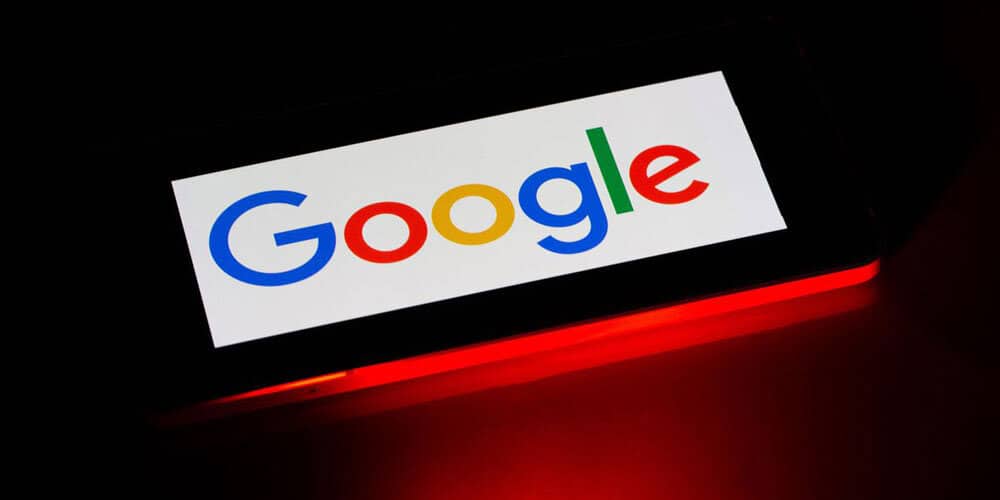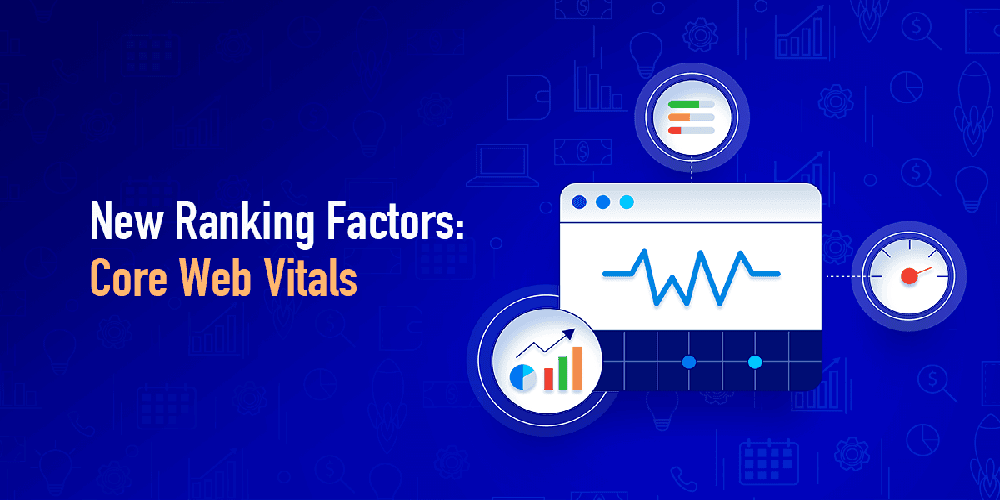Welcome Bank Studio & KG Photography

Welcome Bank Studio & KG Photography. A new client has arrived with Direct Submit. Bank Studio and KG Photography providing commercial, PR, product, and packaging photography for national and international brands. Appearing regularly in regional and national magazines, the Relish series of cookbooks, and a host of other publications, where their landscape, property, fashion, and food photography are much sought-after. To view a selection of their recent photographic work, visit their commercial photography services website. Bank Photographic studio in Newcastle is available for hire, and provides a light airy commercial photography studio, complete with large windows, a fully equipped kitchen, prop and background department, makeup area and outside space, disabled access, and free parking. Would you like to promote your business with Direct Submit? Direct Submit have developed a proven set of SEO Services that can help your business grow by focusing on three key areas: > Higher Search Engine Rankings > Quality Website Traffic > Measurable Results With offices in Durham and Newcastle, we pride ourselves on delivering top-quality results that are based on proven SEO techniques and intimate, dynamic knowledge of ethical search marketing practices. We’ve helped loads of businesses across the North East and the UK improve their search ranking positions and we’d love to see if we can help you too.
Effective & Affordable SEO Services

Effective & Affordable SEO Services. Getting found in local Google search results has always been important, however, it has just become even more vital! With the explosion of mobile phones, mobile search has now actually taken over desktop search. Just starting up your own business? Maybe you are already running an established local business in but want an online presence and to raise the profile of your brand? Effective & Affordable SEO Services It’s critical that your business is found in search results, maps, and local directories if your customers are local. With the increased popularity of smartphones, searching for businesses that are convenient to a location has far surpassed traditional marketing like the print yellow pages. 87% of people who search for a local business are known to call or go to that type of local business within 24 hours. Direct Submit uses an effective and affordable search engine optimisation process that works. Remember, people are searching for what you offer and we deploy strategies that not only generate visitors but help grow your online presence and improve lead generation. We also work with a number of class-leading tools that help you rank higher and grow your local search visibility. Our local SEO process includes submitting and updating your business information and physical locations on Google, Bing & Yahoo along with countless other directories like Yelp and Foursquare. Citations are an online reference to a business that features the business’ name, address, and phone number (NAP). Having correct NAP details for all your listings across the Internet is crucial for local SEO. Google scans all these listings when searching for information about your business. The data is stored and used when determining ranking. SEO isn’t just black and white and what works for one project won’t necessarily work for the next. As an ethical digital marketing agency, we take a fresh approach to each campaign and our strategies take into account both Google’s ranking factors and the needs of your business. Better rankings will mean more traffic & your business will grow. We’ve been helping ambitious brands improve their online presence and search visibility since 2002. Don’t hesitate and call Direct Submit today on 0845 272 2350 or fill out our consultation request form for a free SEO consultation.
Update on Google Web Page Titles Updates

An Update on Google Web Page Titles Updates. One of the primary ways people determine which search results might be relevant to their query is by reviewing the titles of listed web pages. That’s why Google Search works hard to provide the best titles for documents in the results to connect searchers with the content that creators, publishers, businesses, and others have produced. Google confirms it now uses even more ways to generate page titles that are used in search snippets. Titles can be sourced from the H1 tag, any other text on the page, or even the anchor text from links pointing to the page. At the same time, Google claims it uses original title tags in over 80% of cases. Google says that title tags can sometimes be: >>> Very long. >>> “Stuffed” with keywords, because creators mistakenly think adding a bunch of words will increase the chances that a page will rank better. >>> Lack title tags entirely or contain repetitive “boilerplate” language. For instance, home pages might simply be called “Home”. In other cases, all pages in a site might be called “Untitled” or simply have the name of the site. Overall, the update is designed to produce more readable and accessible titles for pages. In some cases, Google may add site names where that is seen as helpful. In other instances, when encountering an extremely long title, they might select the most relevant portion rather than starting at the beginning and truncating more useful parts. They also add that, “as with any system, the titles we generate won’t always be perfect. We do welcome any feedback in our forums. We’re already making refinements to our new system based on feedback, and we’ll keep working to make it even better over time. Our testing shows the change we’ve introduced produces titles that are more readable and preferred by searchers compared to our old system”.
Google Rewriting Title Tags in SERPs

Google Rewriting Title Tags in SERPs. Google has started replacing the title tags in SERPs with other relevant text from a webpage. Google is rewriting title tags for a limited amount of pages in search results, often replacing the text with a page’s H1 tag. It’s known that Google adjusts titles in SERPs by making small tweaks, such as appending a business’s name to the end. But now Google is overriding titles with different text. SEOs started taking notice of this on August 16, reports the Search Engine Journal, as evidenced by tweets mentioning a “massive” title rewrite on Google. The scale of title rewrites is unknown at this time, but it’s widespread enough for multiple SEOs to come across it already. Evidence suggests Google is pulling in text from H1 tags for a majority of these rewrites. In theory, it sounds like Google may choose to grab any relevant text from a page and display it as the title in SERPs. That’s long been the case for meta descriptions, as Google can dynamically adjust the description in search snippets to better match a user’s query. If this is anything more than a live test spotted in the wild, Google should notify SEOs about it sooner than later. It’s impossible to draw any conclusions about Google rewriting title tags at this time. Google is known to run A/B tests in live search results, so it’s possible what we’re seeing will go back to normal in the near future. On the other hand, we may be seeing the initial stages of a permanent change. Assuming for a second this is how Google will handle titles in search snippets going forward, it could end up being a good thing for websites. The apparent goal of replacing titles is to enhance the relevancy for searchers. If that’s the case, a more relevant title could be more compelling to click on. With regards to how concerned you should be about this update, I’ll point to this guidance from Mueller. This change should generate a few questions about this on next Friday’s Q&A with Google’s John Mueller. He states that titles are important, but suggests they’re not worth stressing over: “Titles are important! They are important for SEO. They are used as a ranking factor. Of course, they are definitely used as a ranking factor, but it is not something where I’d say the time you spend on tweaking the title is really the best use of your time.” For what it’s worth, I haven’t seen any reports of pages with rewritten titles dropping in rankings. So that’s a good indication this change won’t make SEOs jobs any more difficult.
Skepticism of the Core Web Vitals Ranking Factor

Skepticism of the Core Web Vitals Ranking Factor. Google’s John Mueller recently answered a question on Reddit that expressed skepticism of Core Web Vitals as a ranking factor. Mueller reaffirmed the importance of CWV as a ranking factor and should not be dismissed as a ranking factor. Google Has Lowered Expectations of CWV Ranking Factor, so it’s not unexpected that members of the search community would express skepticism of the CWV ranking factor. Is Core Web Vital a Ranking Factor? Google itself has been downplaying how powerful CWV is as a ranking factor. John Mueller himself said this about Core Web Vitals: “…relevance is still by far much more important. So just because your website is faster with regards to Core Web Vitals than some competitors doesn’t necessarily mean that …you will jump to position number one in the search results.” Google published a Core Web Vitals FAQ that also lowered expectations of the CWV ranking factor. Google’s John Mueller replied that affirmed that core web vitals should not be dismissed as a ranking factor. He insisted that it could be felt more strongly in some sites than others. He wrote: “It is a ranking factor, and it’s more than a tie-breaker, but it also doesn’t replace relevance. Depending on the sites you work on, you might notice it more, or you might notice it less. As an SEO, a part of your role is to take all of the possible optimizations and figure out which ones are worth spending time on. Any SEO tool will spit out 10s or 100s of “recommendations”, most of those are going to be irrelevant to your site’s visibility in search. Finding the items that make sense to work on takes experience.” CWV Has Value Beyond Being a Ranking Signal Mueller next stated that CWV has value that extends beyond a ranking signal, rightly pointing out that speed related user experiences can affect how much a website earns. He pointed out the self-defeating nature of promoting a site to the top of the SERPs only to have the earnings never reach their potentials because of low page speed experiences. Mueller wrote: “The other thing to keep in mind with core web vitals is that it’s more than a random ranking factor, it’s also something that affects your site’s usability after it ranks (when people actually visit). If you get more traffic (from other SEO efforts) and your conversion rate is low, that traffic is not going to be as useful as when you have a higher conversion rate (assuming UX/speed affects your conversion rate, which it usually does). CWV is a great way of recognizing and quantifying common user annoyances.” Core Web Vitals is Important Mueller expressed that Core Web Vitals is stronger and more important than a tie-breaker. He also pointed out how speed and page experience are important for monetizing a website to the fullest of its potential. Mueller mentioned conversion rates but page speed can also improve ad impressions because there will be less people backing out of the site when it has a quality page experience.
How Long Does it Take to See SEO results

How Long Does it Take to See SEO results?Generally speaking, we recommend sticking with an SEO campaign for at least 6 months, which should be enough time to see noticeable improvement for most niches. However, usually, it is possible to see at least some initial results within 2-3 months, especially if you are not ranking due to technical issues and/or poor optimisation – both of which can usually be fixed within the first month or two, depending on the size of the site and the depth of the issues. You need to wait between 9 and 12 months to see positive results from effective, detailed, and well-structured SEO work; creating it, implementing it, and then leaving it to work its magic whilst quietly observing it. This is why SEO is a long-term solution. SEO Requires a Realistic TimelineFrustrating as this may feel, the answer to the question ‘how long does SEO take to work?’ is: it depends on many different factors. There are multiple variables to take into account. Content, website design, domain name/ URL, onsite errors, domain age, page speed, the online competitiveness of the industry and target market are all but a few variable factors that will impact how effective a website is at ranking in search engines and how long SEO takes to work. SEO requires a team effort and a realistic timeline which allows for both long-term marketing strategy and short-term website tasks. Search engine analysts work meticulously to fix current problems, prevent future website issues, and improve website quality. Although it’s a long-term solution, and will take a lot of time, work, and patience, it’s an incredibly powerful, long-term solution to a long-term need. Our SEO service uses strategies that will help your website rank in search results raising your online presence. We drive growth, increase conversion rates, generate leads, improve sales, and help achieve core business goals. So, if you are keen to start focusing on your business’s SEO and do all you can to optimise your site in order to rank as highly as possible, contact us today. Given a little time, you’ll definitely see an increase in brand exposure, page views, and ultimately, sales.
Google Link Spam Update July 2021

Google Link Spam Update July 2021. A new Google algorithm update that will aim at spam links will is rolling out right now. What will be the core of that update and what website’s will be affected? On 26th July 2021, Google announced a new update concerning spam links. According to Duy Nguyen – a Google search quality analyst, the change is going to be wide and include many languages. So what’s the new spam links update about? Google wrote “in our continued efforts to improve the quality of the search results, we’re launching a new link spam fighting change today — which we call the “link spam update.” This algorithm update, which will rollout across the next two weeks, is even more effective at identifying and nullifying link spam more broadly, across multiple languages. Sites taking part in link spam will see changes in Search as those links are re-assessed by our algorithms.” The latest update’s job is to identify spam links and ignore those in the evaluation of the website they lead to. It means that a website that has many low-quality back links won’t be penalised, but instead, all those links will be ignored. However, in fact, this may cause such website’s to lose their ranks in search results. It’s the continuation of the approach brought to the Google search engine by Penguin 4.0. “In our continued efforts to improve the quality of the search results, we’re launching a new link spam fighting change today — which we call the “link spam update.” This algorithm update, which will rollout across the next two weeks, is even more effective at identifying and nullifying link spam more broadly, across multiple languages. Sites taking part in link spam will see changes in Search as those links are re-assessed by our algorithms”. Guidelines for the linking process remain the same: Affiliate links are ok. In other words, if someone willingly places your link on their website for commercial purposes – that’s perfectly fine. Google encourages to tag such links with rel=”sponsored” attribute. Sponsored links and guest posts are also fine unless they violate link scheme guidelines. What not to do: > Don’t buy links transferring PageRank – in general, don’t buy links that are not sponsored posts, it won’t pay off. > Don’t go for large-scale link exchanges (“I’ll link to your site, you’ll link to mine” thing. A few such links won’t affect your website, but don’t go all-in for that tactic. > Don’t overdo links in sponsored and guest posts, be especially careful with anchors. One link is totally enough. > Don’t use automated link creators. > Don’t require a link as a part of a Terms of Service, contract, or other cooperation of this kind, especially when not allowing third-party to qualify the outbound link. If you see ranking declines in Google over the next two weeks, it might be related to this new link spam update. Make sure your links are natural and in accordance with Google’s webmaster guidelines. Work on improving your website, so it can naturally attract new links over time.
Google July 2021 Core Update Completed

Google July 2021 Core Update Completed. After 12-days, Google said the July 2021 core update is done. It rolled out between July 1st and July 12th. Google has confirmed that the July 2021 core update is now “effectively complete.” Google wrote on the Search Liaison Twitter account “the July 2021 core update rollout is now effectively complete.” Barry Schwartz posted the following on the Search Engine Land blog. July 2021 core update. Google started the July 2021 core update on July 1, 2021. This update took a twelve-days to rollout, whereas the sister update, the June 2021 core update only two ten-days to fully roll out. July smaller than June. It seemed based on our analysis from several data providers that the July core update was smaller and less impactful than the June core update. The facts. Google began rolling out the July 2021 core update at around noon on July 1, 2021. This update finished rolling out today, July 12th at around 1pm ET. The June 2021 core update, as we previously reported, started to roll out around 6:30pm ET on Wednesday, June 2nd. Like all core updates, this was a global update and was not specific to any region, language or category of web sites. It is a classic “broad core update” that Google releases every several months or so. The previous core update before the back-to-back June and July core update combo, was just shy of a six-month wait period, where the December 2020 core update took place on Dec. 3rd. When was it felt. Based on what we’ve been tracking, it seems this July update was felt in a big way on July 2, 2021 and then again on July 9, 2021 and even possibly today, July 12, 2021. So if you saw big changes to your rankings between July 1 and July 12, 2021, espesially on July 2nd and 9th – it was likely related to this July 2021 core update. Lots of ongoing updates. In the past month, we had about ten updates from Google and only three of those updates were not confirmed by Google. In the most recent order, we had the July 2021 core update, Google MUM rolled out this month, then the June 28 spam update, the June 23rd spam update, the Google page experience update, the Google predator algorithm update, the June 2021 core update and then a few unconfirmed updates. Previous core updates. The most recent previous core update was the June 2021 core update and that update was slow to roll out but a big one. Then we had the December 2020 core update ands the December update was very big, bigger than the May 2020 core update, and that update was also big and broad and took a couple of weeks to fully roll out. Before that was the January 2020 core update, we had some analysis on that update over here. The one prior to that was the September 2019 core update. That update felt weaker to many SEOs and webmasters, as many said it didn’t have as big of an impact as previous core updates. Google also released an update in November, but that one was specific to local rankings. You can read more about past Google updates over here. What to do if you are hit. Google has given advice on what to consider if you are negatively impacted by a core update in the past. There aren’t specific actions to take to recover, and in fact, a negative rankings impact may not signal anything is wrong with your pages. However, Google has offered a list of questions to consider if your site is hit by a core update. Google did say you can see a bit of a recovery between core updates but the biggest change you would see would be after another core update. Whenever Google updates its search ranking algorithms, it means that your site can do better or worse in the search results. Knowing when Google makes these updates gives us something to point to in order to understand if it was something you changed on your web site or something Google changed with its ranking algorithm. If your site saw any changes between July 1 and July 12, it was likely related to the July core update.
Choose a 5-star SEO Agency to Promote Your Business

Choose an SEO Agency to Promote Your Business. With searchers moving online, more and more people rely on search engines to provide relevant, helpful, and informative content. As a result, Search Engine Optimisation or SEO is now one of the most effective tools for businesses looking to grow online. Working with Direct Submit gives you access to our SEO expertise and considerable experience. Choose a 5-star SEO Agency to Promote Your Business A Digital Marketing company who use their knowledge and skills to transform your website into an engaging, effortless and exciting storefront, and raise awareness about your brand through several key SEO methods, including: • Keyword research, analysis & identification • Website structuring • Backlink building • Cross-linking • Producing well-written content • PPC and AdWords campaigns • Directory management • And more! Collectively, these aspects of SEO help boost your rankings by engaging your target audience and pushing organic traffic. Further, if key elements are missing, such as proper meta descriptions or consistent contact information, your business may unnecessarily remain behind the competition and have trouble reaching its full potential. So, if you’re looking for help in netting those top-ranked positions in the organic search results without having to spend fortunes on paid ads. You’ve come to the right place. Direct Submit is a 5-star rated SEO agency with proven results. We help North East & UK businesses generate low-cost, high converting leads on Google to maximise ROI and increase sales. If you want to reach the top quickly using risk-free strategies that are proven to work as a long-term investment, our highly rated SEO services are just what you need. Contact us today on 0845 2722350 and get your online marketing project moving.
Google: Put Unique Content Above The Fold

Google: Put Unique Content Above The Fold. Google’s John Mueller advises site owners that a webpage should have at least some unique content in the above-the-fold area. How important is it for the above-the-fold content to be unique on each page? As it turns out, Google considers it fairly important that at least some content above the fold is unique to the page it’s on. This is recommended by Google’s John Mueller during the weekly SEO hangout recorded on June 4. “The important part for us is really that there is some amount of unique content in the above-the-fold area. So if you have a banner on top, and you have a generic hero image on top, that’s totally fine. But some of the above-the-fold content should be unique for that page. And that could be something like a heading that’s visible in a minimum case. But at least some of the above-the-fold content should be unique. So that’s kind of the guidance that we have in that regard.” However, it’s unrealistic for a site to have 100% unique content above the fold of every webpage. Plus, there’s always going to be content that’s repeated across multiple pages, such a navigation menu, or a banner, or other elements that typically appear at the top of a page. If your site’s design limits you to a small amount of custom content in the above-the-fold area, aim to include something that’s useful for ranking purposes. Including something that’s relevant to what the page should rank for may prove to be an effective strategy.
